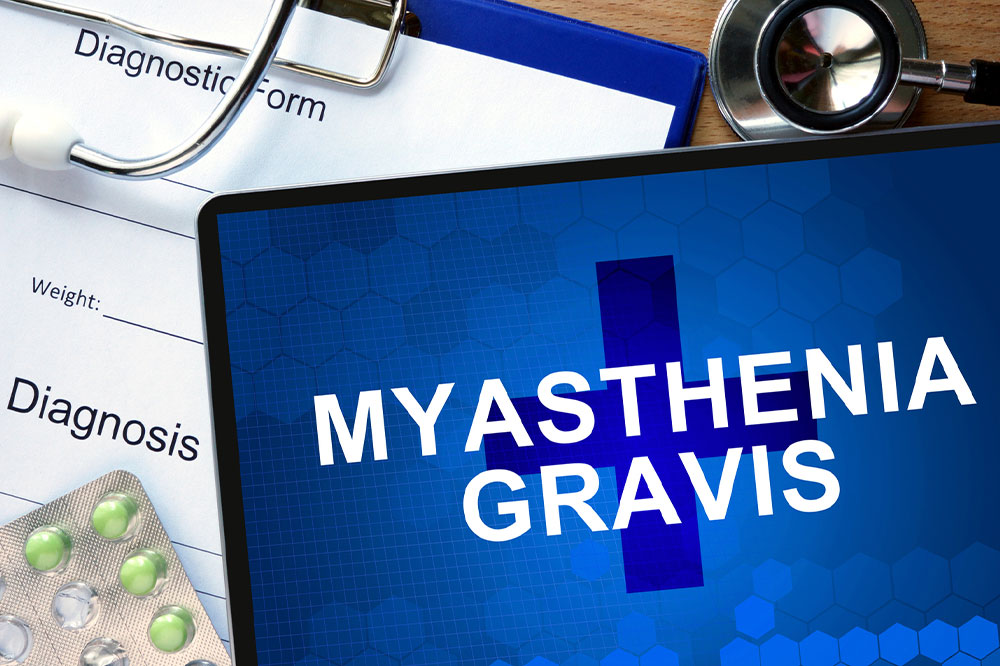Top Therapies for Those With Myasthenia Gravis

Myasthenia gravis is characterized by weakness in the muscles used for basic motor functions. Such a condition occurs because of poor transmission of signals between the nerve cells and muscles. While the main symptom of this rare disorder is weakness in skeletal muscles, it is known to also affect the eyes, face, chest, arms, and legs. Here are the various treatment options one can consider when dealing with myasthenia gravis.
Myasthenia Gravis Treatment
Several treatment options for myasthenia gravis could be prescribed either individually or in combination. There’s no cure for this condition, so most treatments focus on tackling the various symptoms as well as the disorder’s overall progression. Common treatment options for myasthenia gravis include,
Pharmaceuticals
Standard treatments for myasthenia gravis include options such as cholinesterase inhibitors, corticosteroids, and immunosuppressants. Cholinesterase inhibitors help improve muscle contractions and even muscle strength in some individuals. Common side effects of this treatment include diarrhea, sweating, and excessive salivation. Corticosteroids control the immune system and prevent the production and release of antibodies into the bloodstream. Corticosteroids typically have serious side effects such as bone thinning. Immunosuppressants alter the immune system and can take a long time to work. Side effects of this treatment include a high risk of infection that could damage the liver or kidneys.
Surgery
Another treatment for myasthenia gravis is surgery; it’s mainly an option for those with a thymoma tumor in their thymus gland. Doctors can also suggest surgery for those who do not have a tumor in their thymus gland, as removing the thymus can actually help with the symptoms of myasthenia gravis. On the downside, these positive effects could take a long time to develop.
Individuals opt for open or minimally invasive surgery. The former involves splitting the central breastbone to open the chest and remove the gland. Minimally invasive surgery has very few incisions and can be done with the help of a robot or video assistance. Minimally invasive surgeries have lower mortality rates and less blood loss and pain.
Intravenous Therapy
Intravenous therapy is used when the individual is facing a sudden worsening of symptoms over a short period. There are two main forms of intravenous therapy: the first one is plasmapheresis, which filters blood and removes the antibodies that are blocking the transmission of signals from the nerve endings to the muscles. The positive effects of this treatment can last for a few weeks, after which the individual will have to go back to repeat the procedure. The second treatment option is intravenous immunoglobulin, wherein the body is provided with normal antibodies that alter the immune system’s response. The benefits of this treatment can last for three to six weeks.
Treatments prescribed by the healthcare professional will depend on the age of the individual, the severity of the condition, and how fast it is progressing. One can go to a treatment center for myasthenia gravis. These treatment centers can provide individuals with the latest treatment options and even give the best care.
Myasthenia Gravis Natural Treatment Options
Aside from the treatments prescribed by healthcare professionals, individuals can also try natural or holistic treatments. These alternative treatments provide support, help strengthen the body, and keep symptoms at bay. Some common holistic treatments for myasthenia gravis include,
Chinese Herb treatment
A popular natural treatment for myasthenia gravis is traditional Chinese herbs. While more studies are needed to understand this better, the few that have been conducted showed promising results when traditional Chinese treatments were supplemented with prescribed treatments. Ensure that you talk to your doctor as well as the natural herbal treatment practitioner about what kinds of treatments you are on before you start. Having such transparency will help both keep in mind any possible interactions between your western treatments and traditional supplements.
Respiratory Muscle Training
Another holistic treatment that can help with myasthenia is respiratory muscle training. Research has shown that those who receive any form of pulmonary training have better endurance and can tackle breathlessness better. Such training improves the coordination and the strength of the muscles required to breathe in and out. This practice also makes breathing easy as your muscles do not have to work as hard, lowering the chances of a myasthenic attack.
Changing Food Choices
When fighting myasthenia gravis, individuals need to focus on building overall health in the body by eating healthier and adding foods that can help alleviate symptoms. Add vegetables, whole grains, lean proteins, as well as foods that are high in calcium and vitamin D. To maintain a healthy body-mass index and reduce the risk of other conditions, reduce or avoid any intake of fatty and spicy foods from daily meals.
The abovementioned options are normally considered when treating myasthenia gravis. One must consult a doctor before considering any of the treatments to avoid any side effects.



